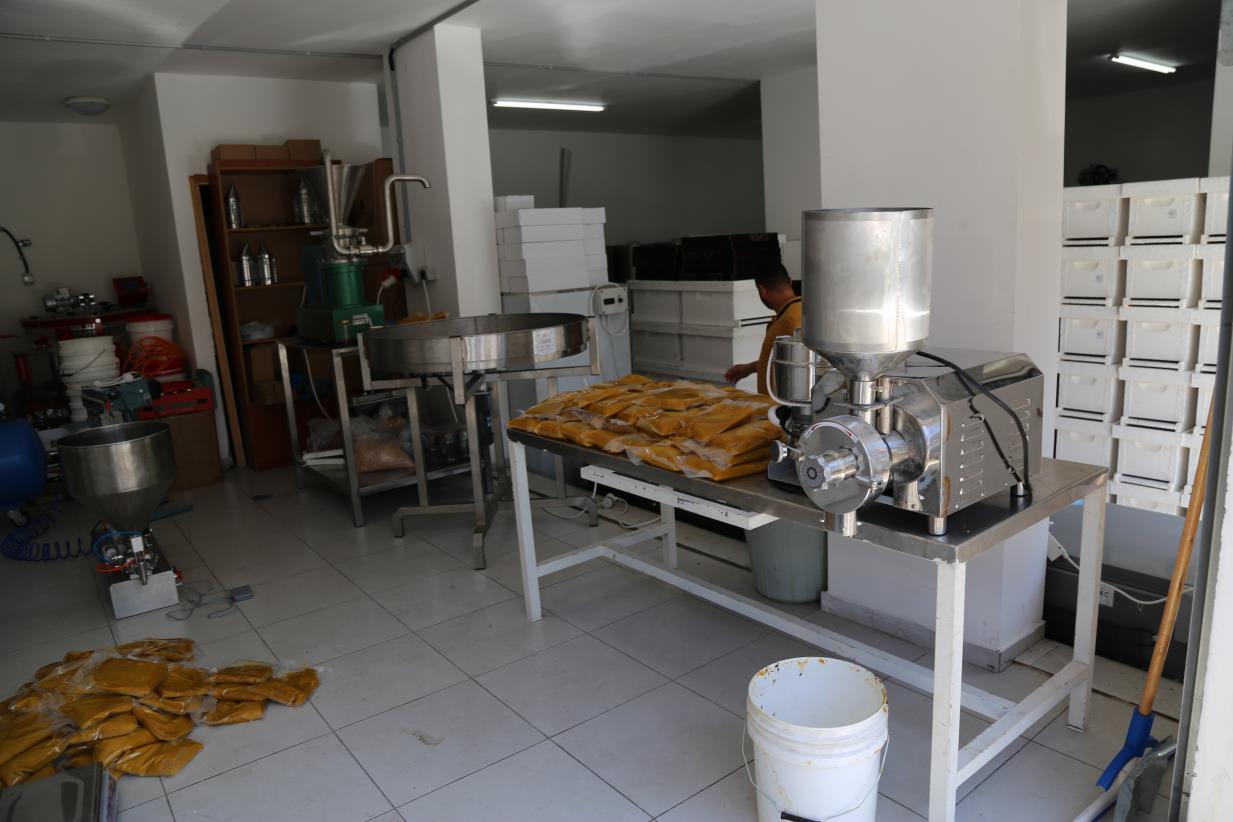Driving innovation in the Palestinian beekeeping industry through beeswax recycling

In July 2017, 15 beekeepers in Jenin, West Bank, aspiring to harness the untapped potential of beekeeping came together to create a support system known as Al Hanoun Honey Cooperative. Unbeknownst to much of the world, numbers from 2020 have placed Palestine as a viable contender in the market of beekeeping, with about 86 000 beehives in both the West Bank and Gaza Strip – a 7.5 percent increase since 2017.[1] Recognizing this potential, youth from different backgrounds became attracted to the cooperative, which quickly turned into a strong community of individuals working along various stages of the honey production cycle.
Abu Yousef, founder of the cooperative, began his venture with just 150 beehives. Thanks to the hard work and forward-thinking mindset of Abu Yousef and his cooperative’s members, he has doubled production by adding a variety of specialty items for end consumers to his production line, including honey with nuts, scented candles, supplements for bees to enhance honey production and other various by-products made with recycled beeswax. With the continuous expansion of his business model and the increasing demand from consumers, members are now aiming to open a store to sell and market their products.
One of those members is Islam Daghlas, a 23-year-old veterinarian who originally took up beekeeping as a hobby four years ago. Little did he know, the five beehives he purchased using his savings would grow fourfold and generate a reliable source of income. Last year, Islam and Ahmad Nizar, another cooperative member of the same age specializing in nutrition science, reached out to FAO in search of in-kind and technical support to help realize their vision to expand their colonies through the introduction of nonconventional production lines. Since then, FAO, through its project aimed at supporting economic growth through optimized agricultural value chains in the West Bank funded by the Government of Canada, has been supporting the cooperative in its endeavors through the provision of a beeswax recycling machine and valuable tailored technical guidance.
Within one year of introducing the recycling machine, Islam and Ahmad were able to save an estimated NIS 18 000 – a 28 percent savings – spent to acquire beeswax, the main material used to prepare new honeycombs. This result is not only promising for the future of Al Hannoun but also for the beekeeping industry in Palestine as a whole, which imported about 60 tons of industrial beeswax in 2020.[1] Estimates show that through optimizing the practice of recycling beeswax, the industry as a whole can save about 50 percent in related business expenses. Furthermore, recycled beeswax is of a higher quality than artificially imported options in the market, translating into safer and more eco-friendly products.
Today, Al Hannoun Cooperative is proudly composed of 40 young members, including 14 females, two of whom work full-time. The enthusiasm exuded by young people like Ahmad and Isalm is inspiring other cooperatives in Palestine to seek out innovative and environmentally-friendly investment opportunities that can enhance local livelihoods and the overall quality of living of its people.
[1]Palestinian Ministry of Agriculture, 2020.
